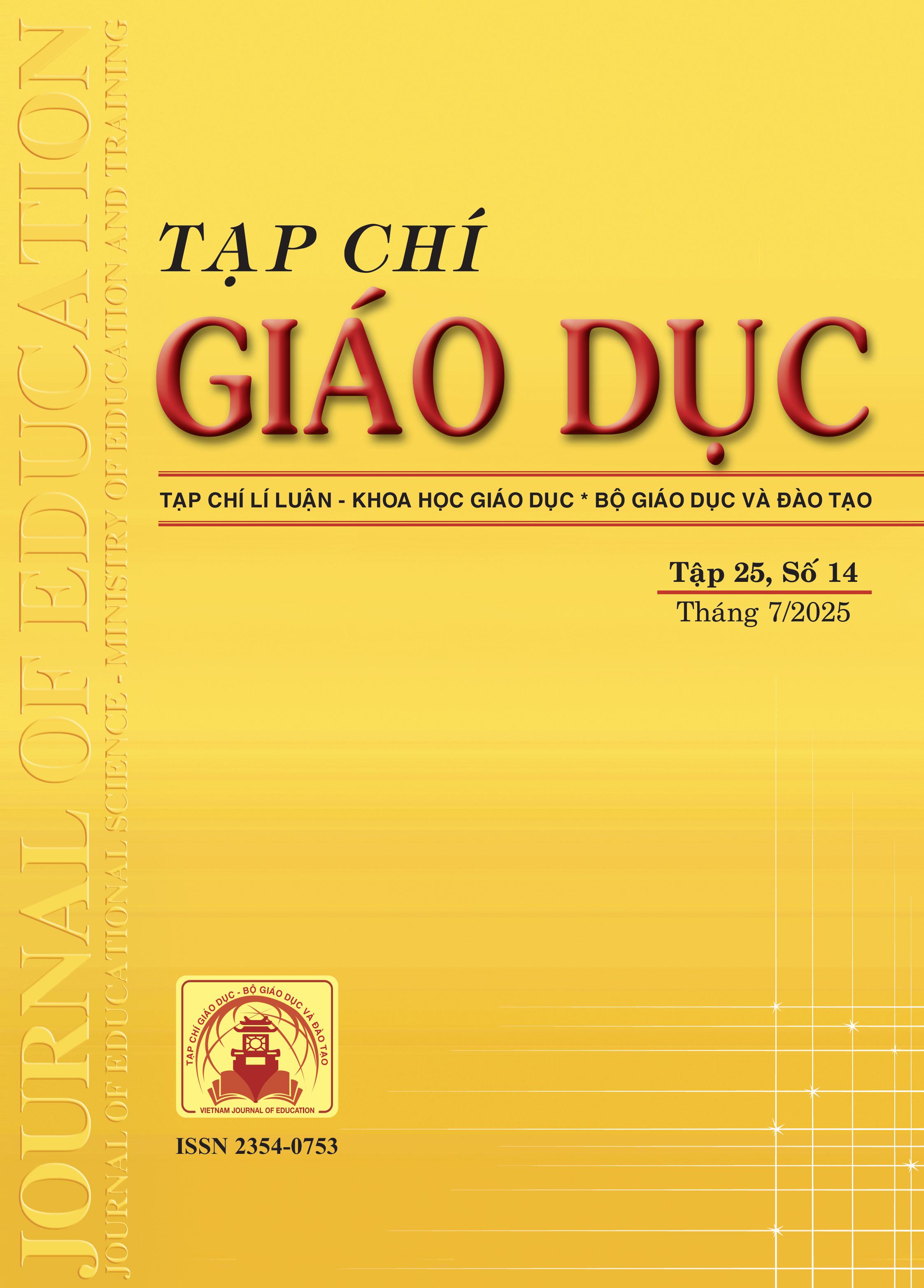Ứng dụng chánh niệm trong ứng xử học đường cho giáo viên tại các trường phổ thông trên địa bàn thành phố Hà Nội: Thực trạng và đề xuất biện pháp
- Từ khóa:
- Mindfulness
- school behavior
- teachers
- high school
Tóm tắt
Work pressure, teaching innovations, and student diversity are causing teachers in Vietnam’s general education system stress and professional burnout, negatively affecting teaching quality. In this context, mindfulness is considered a potential approach to help teachers regulate emotions, reduce stress, and improve pedagogical behavior. This study examines the role of mindfulness in teachers’ school behavior in Vietnam. A survey of 95 teachers in Hanoi reveals that although most teachers recognized the benefits of mindfulness, its practical application remained challenging due to a lack of training, work pressure, and time constraints. However, teachers who practice mindfulness tend to have better emotional regulation, greater empathy, and improved interactions with students. Based on these findings, the study proposes measures to integrate mindfulness into education, enhancing teachers' mental well-being and fostering a more positive and effective learning environment.
Tài liệu tham khảo
Felver, J. C., Doerner, E., Jones, J., Kaye, N. C., & Merrell, K. W. (2013). Mindfulness in school psychology: Applications for intervention and professional practice. Psychology in the Schools, 50(6), 531-547.
James, L., Hanh, T. N. (2007). The Art of Power. Tantor, Old Saybrook, CT, US.
Klingbeil, D. A., & Renshaw, T. L. (2018). Mindfulness-Based Interventions for Teachers: A Meta-Analysis of the Emerging Evidence-Base. School Psychology Quarterly.
Lavy, S., & Berkovich-Ohana, A. (2020). From teachers’ mindfulness to students’ thriving: The mindful self in school relationships (MSSR) model. Mindfulness, 11, 2258-2273.
Mijakoski, D., Cheptea, D., Marca, S. C., Shoman, Y., Caglayan, C., Bugge, M. D., ... & Canu, I. G. (2022). Determinants of burnout among teachers: a systematic review of longitudinal studies. International Journal of Environmental Research and Public Health, 19(9), 5776.
Nguyễn Dục Quang, Nguyễn Thị Ngọc Hà (2018). Nghiên cứu về văn hóa ứng xử học đường và giáo dục văn hóa ứng xử học đường. Tạp chí Khoa học Giáo dục Việt Nam, 2, 13-17.
Nguyễn Thị Thúy Dung (2020). Hoạt động xây dựng văn hóa ứng xử ở trường phổ thông. Tạp chí Khoa học Giáo dục Việt Nam, 27, 18-23.
Renshaw, T. L., Weeks, S. N., Roberson, A. J., Upton, S. R., Barr, J. D., Phan, M. L., & Farley, C. D. (2022). Cultivating Mindfulness in Schools to Promote Well-Being. In Handbook of Positive Psychology in Schools (3rd ed.).
Taylor, C., Harrison, J., Haimovitz, K., Oberle, E., Thomson, K., Schonert-Reichl, K., & Roeser, R. W. (2015). Examining Ways That a Mindfulness-Based Intervention Reduces Stress in Public School Teachers: A Mixed-Methods Study. Mindfulness, 7, 115-129. https://doi.org/10.1007/s12671-015-0425-4
Trần Hoàng Cẩm Tú (2024). Vai trò của trạng thái chánh niệm trong mối quan hệ giữa áp lực công việc và sự mệt mỏi cảm xúc - Nghiên cứu tại các doanh nghiệp ở Thành phố Hồ Chí Minh. Tạp chí Khoa học và Công nghệ, 7(3), 64-72.
Trần Thị Bích Ngân, Phạm Thị Hồng Thắm, Nguyễn Thanh Tâm (2022). Kinh nghiệm quốc tế về ứng dụng MINDFULNESS (chánh niệm) cho giáo viên và vận dụng ở Việt Nam. Tạp chí Khoa học Giáo dục Việt Nam, 18(S3), 97-102.
Wells, C. M. (2015). Conceptualizing mindful leadership in schools how the practice of mindfulness informs the practice of leading. The National Council of Professors of Educational Administration (NCPEA), 2(1), 1-5.
Zenner, C., Herrnleben-Kurz, S., & Walach, H. (2014). Mindfulness-based interventions in schools - a systematic review and meta-analysis. Frontiers in Psychology, 5, 603.
Tải xuống
Đã Xuất bản
Cách trích dẫn
Số
Chuyên mục
Giấy phép

Tác phẩm này được cấp phép theo Ghi nhận tác giả của Creative Commons Giấy phép quốc tế 4.0 .












